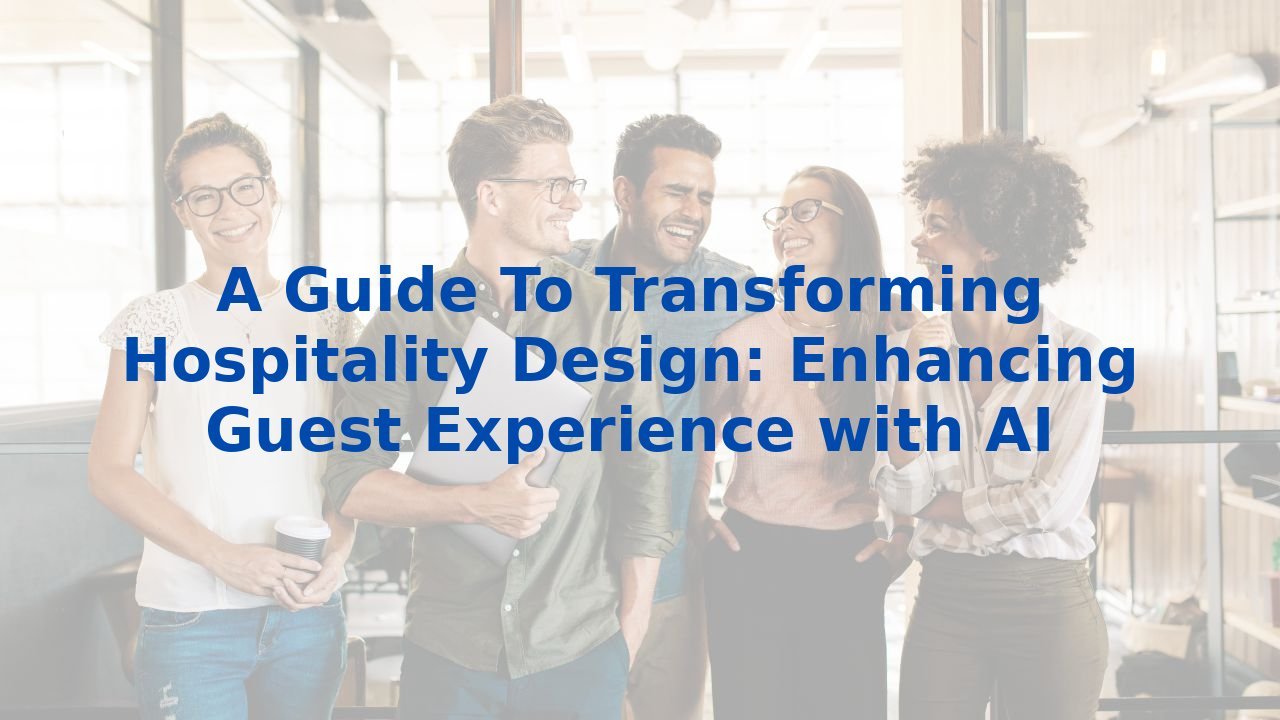A Guide To Transforming Hospitality Design: Enhancing Guest Experience with AI
A Guide To Transforming Hospitality Design: Enhancing Guest Experience with AI
Introduction
In the dynamic world of hospitality, creating environments that resonate with the guest experience is paramount. Hospitality design is about crafting an atmosphere that combines functionality, aesthetics, and efficiency. As the industry embraces evolution, artificial intelligence (AI) emerges as a transformative force, reshaping how businesses operate. This guide will explore the business processes involved in hospitality design and reveal how AI solutions can serve as catalysts for both increased efficiency and enhanced guest satisfaction.
Enhancing Guest Experience with AI
At the heart of the hospitality experience lies personalization, and AI is poised to take this to the next level. Here are some powerful ways AI is enhancing the guest experience:
- Personalized Recommendations: AI systems can analyze vast amounts of guest data to tailor room settings, recommend activities that align with individual interests, and anticipate needs—whether it’s providing extra towels or arranging for a late checkout.
- Smart Room Technology: Imagine a hotel room that adjusts automatically to your preferences—AI-powered smart rooms do just that, adjusting lighting, temperature, and ambiance to create optimal comfort.
- Virtual Tours: AI-driven virtual tours allow potential guests to explore rooms and amenities from their devices, simplifying the planning process and enhancing engagement before check-in.
- Real-Time Assistance: With AI chatbots and virtual assistants available 24/7, guests can get instant answers to their questions, make reservations, and receive personalized recommendations on-the-go.
Streamlining Operations with AI
Efficiency in operations is as crucial as enhancing guest experience. AI plays a powerful role in streamlining various operational processes:
- Automated Tasks: Routine tasks such as booking and contactless check-in can be automated through AI, allowing staff to concentrate on higher-value tasks that genuinely enhance the guest experience.
- Predictive Maintenance: AI can predict equipment failures by analyzing patterns, enabling timely maintenance that minimizes downtime and keeps operations running smoothly.
- Energy Efficiency: AI optimizes energy consumption by adjusting heating, cooling, and lighting systems based on real-time occupancy, significantly reducing costs while promoting sustainability.
Optimizing Space Design with AI
Transformative design isn't just about aesthetics—it's about strategically optimizing spaces for both guest satisfaction and operational efficiency. Here’s how AI is revolutionizing spatial planning in hospitality:
- Spatial Planning: AI algorithms can decipher guest preferences and historical behavior, providing insights that help create layouts that enhance both satisfaction and revenue potential.
- Data-Driven Design: By leveraging data from guest feedback, AI can pinpoint the most and least popular areas within a property, allowing for insights-driven redesign efforts that better meet guest needs.
The Benefits of Training Employees for AI
Integrating AI technologies requires not only advanced tools but also skilled personnel. Here’s why training employees is crucial:
- Enhanced Efficiency: Employees who understand AI tools can integrate them seamlessly into their workflows, improving efficiency and elevating service quality.
- Personalized Service: An informed staff can leverage AI capabilities to offer tailored services to guests, enriching their overall experience and ensuring repeat visits.
- Adaptability: Ongoing training enables employees to remain agile and responsive to technological advancements, helping organizations maintain a competitive edge in a fast-paced industry.
Conclusion
The integration of AI into hospitality design is not just a trend but a pivotal shift that holds great promise for the future. By employing AI for personalized guest interactions, optimizing operational efficiencies, and redefining spatial arrangements, hospitality establishments can create environments that resonate deeply with guests. Moreover, training employees in AI competencies strengthens these initiatives, ensuring that organizations are well-equipped to harness the full potential of technology. As we continue to navigate this ever-evolving landscape, embracing AI is not just an option—it’s essential for exceptional service and long-term success.
Embrace the future of hospitality design today—leverage AI not only to create stunning spaces but to deliver unparalleled experiences that guests will cherish and remember.



